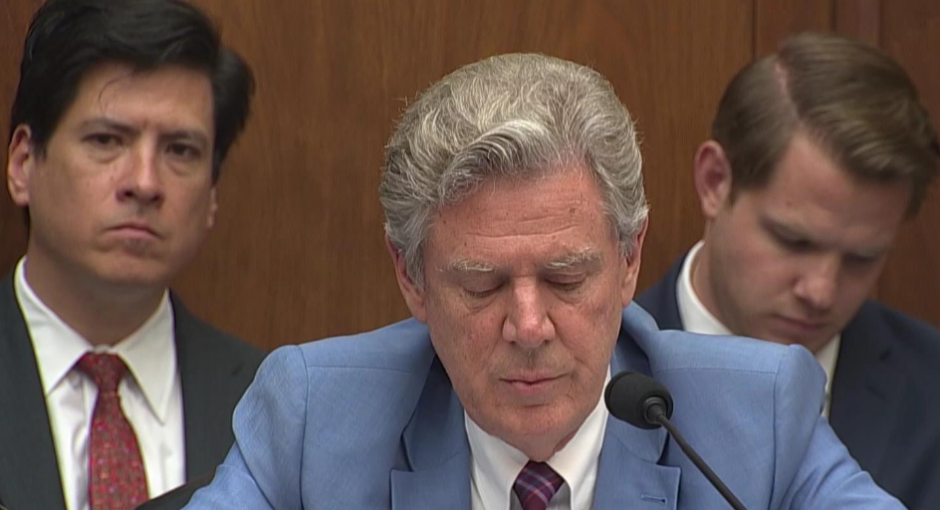UPDATE Thursday, April 22, 2021, 1:00 p.m. EDT—U.S. House Energy and Commerce (E&C) Chair Frank Pallone this morning introduced a significantly slimmed-down version of H.R. 3, the drug pricing bill that the House passed during the last session of Congress but the then-GOP-controlled Senate let die.
The revised House bill does not include language from the original bill, strongly opposed by 340B covered entities, that entities say would foreclose all remaining profits on 340B-purchased drugs billed to state Medicaid agencies.
According to a news release from Pallone’s office, the new version of H.R. 3 would
- Empower the Secretary of Health and Human Services to negotiate better prescription drug prices in Medicare and make those negotiated prices available to commercial health insurance plans. The CBO estimates that drugs subject to negotiation would see price reductions of up to 55 percent.
- Cap Medicare beneficiaries’ out-of-pocket spending on prescription drugs at $2,000 per year.
- Reverse years of unfair price hikes by requiring drug manufacturers to pay a rebate back to the federal government if they increase prices faster than inflation.
- Reinvest federal cost-savings in the National Institutes of Health and the Food and Drug Administration to support research and development of new breakthrough treatments and cures, as well as make investments in combatting the opioid crisis.
Meanwhile, the top Republicans on three U.S. House committees yesterday released a bill to lower drug costs that includes language from past House and Senate drug pricing bills that 340B provider groups strongly oppose.
The bill language would require state Medicaid agencies, in contracts with pharmacy benefit managers or Medicaid managed care contractors, to limit payment to pharmacies for drugs dispensed to Medicaid beneficiaries to ingredient cost plus a dispensing fee. PBMs and Medicaid MCOs also would be barred from charging Medicaid agencies more than what they paid to the pharmacies.
340B hospitals, health centers, and clinics have pointed out to members of Congress that if the Medicaid drug reimbursement language becomes law, all covered entity profits from billing Medicaid agencies at above 340B drug acquisition cost would end. Entities already must bill for 340B drugs dispensed to Medicaid fee-for-service beneficiaries at acquisition cost.
About 70% of Medicaid beneficiaries nationally are enrolled in managed care plans. Cutting off all revenues from 340B purchased drugs billed to Medicaid would hit covered entities that care for high percentages of Medicaid beneficiaries especially hard.
House Energy and Commerce Committee Republican leader Cathy McMorris Rodgers (R-Wash.), Ways and Means Committee Republican leader Kevin Brady (R-Texas), and Education and Labor Committee Republican leader Virginia Foxx (R-N.C.) are offering their Lower Costs, More Cures Act as an alternative to H.R. 3, House Democrats’ drug pricing bill from the last session of Congress. Parts of H.R. 3 are expected to be added to the social-services half of President Biden’s plan to spend billions or trillions of dollars to create jobs and rebuild infrastructure. Controls on government spending on prescription drugs lifted from H.R. 3 would generate savings to pay for Biden’s plan.
The Hill, a news organization that covers Congress, reported yesterday that House Democrats could introduce a drug pricing bill that includes sections of H.R. 3 as soon as today. It said Biden is expected to unveil the social-services component of his infrastructure plan next week.
“However, advocates and lawmakers were on guard on Wednesday over rumors that the drug pricing legislation might not make it into Biden’s package,” The Hill reported.
The language in the new House Republican bill that 340B provider groups oppose also was in S. 2543, Sens. Chuck Grassley (R-Iowa) and Ron Wyden’s (D-Ore.) bipartisan drug pricing bill from the last session of Congress. Grassley asked Xavier Becerra during his Feb. 24 Senate Finance Committee hearing on his nomination to be U.S. health secretary if the Biden administration could get behind a bipartisan bill like his and Wyden’s. Becerra told him the administration “wants to see us lower the price of prescription medicine,” and that he “will be working with you on a bipartisan fashion to reach a solution.”
Colleen Meiman, a senior policy adviser to state primary care associations, called the Medicaid drug reimbursement language in the House and Senate bills “an incredibly short-sighted proposal that would destabilize the health care safety net in the name of ‘transparency.’”
Meiman said the language “would eliminate the ability of community health centers and other safety net providers to retain savings on drugs dispensed to Medicaid managed care patients.” Health centers, she said, “have been eligible for these savings since the 340B program was created in 1992, and use every penny to provide their medically-underserved patients with low-cost pharmaceuticals and other health care services—including COVID testing, treatment, and vaccinations.”
Depriving health centers “of these essential savings would be a crushing blow, jeopardizing their ability to provide essential COVID and other care to the most vulnerable populations in communities across the county,” Meiman said.
The arguments made in fights in New York state and California against shifting Medicaid managed care pharmacy benefits to Medicaid fee for service are basically the same as the arguments against the language in the House Republican bill, H.R. 3, and the Grassley-Wyden bill.
The new, nearly 200-page House Republican bill also would make changes in Medicare Parts B and D drug reimbursement, make changes in Part D’s design, and remove barriers to the introduction and acceptance to biosimilars.


